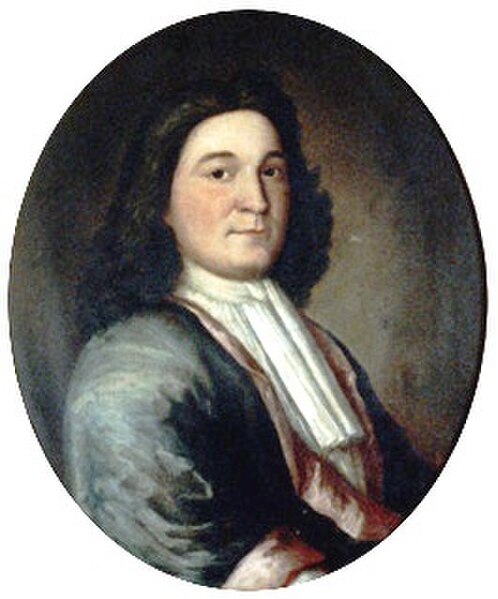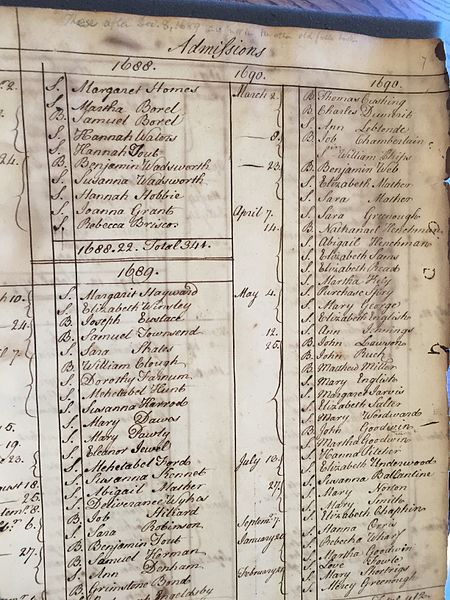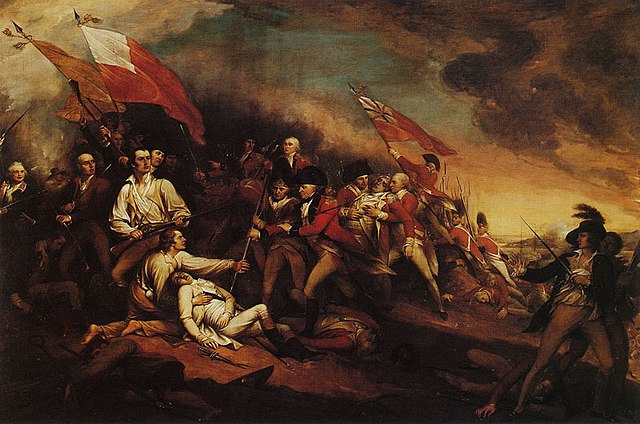Sir William Phips was born in Maine in the Massachusetts Bay Colony and was of humble origin, uneducated, and fatherless from a young age but rapidly advanced from shepherd boy to shipwright, ship's captain, and treasure hunter, the first New England native to be knighted, and the first royally appointed governor of the Province of Massachusetts Bay. Phips was famous in his lifetime for recovering a large treasure from a sunken Spanish galleon but is perhaps best remembered today for establishing the court associated with the infamous Salem Witch Trials, which he grew unhappy with and was forced to prematurely disband after five months.
William Phips
Agreement between Phips and his crew, drawn up at Whitehall
Engraving depicting Phips raising the sunken treasure
Phips added to the rolls of the North church. MHS with permission.
Province of Massachusetts Bay
The Province of Massachusetts Bay was a colony in New England which became one of the thirteen original states of the United States. It was chartered on October 7, 1691, by William III and Mary II, the joint monarchs of the kingdoms of England, Scotland, and Ireland, and was based in the merging of several earlier British colonies in New England. The charter took effect on May 14, 1692, and included the Massachusetts Bay Colony, the Plymouth Colony, the Province of Maine, Martha's Vineyard, Nantucket, Nova Scotia, and New Brunswick; the Commonwealth of Massachusetts is the direct successor. Maine has been a separate state since 1820, and Nova Scotia and New Brunswick are now Canadian provinces, having been part of the colony only until 1697.
A 1773 lithograph of the Boston Tea Party
John Trumbull's 1834 portrait of Joseph Warren's death at the Battle of Bunker Hill






